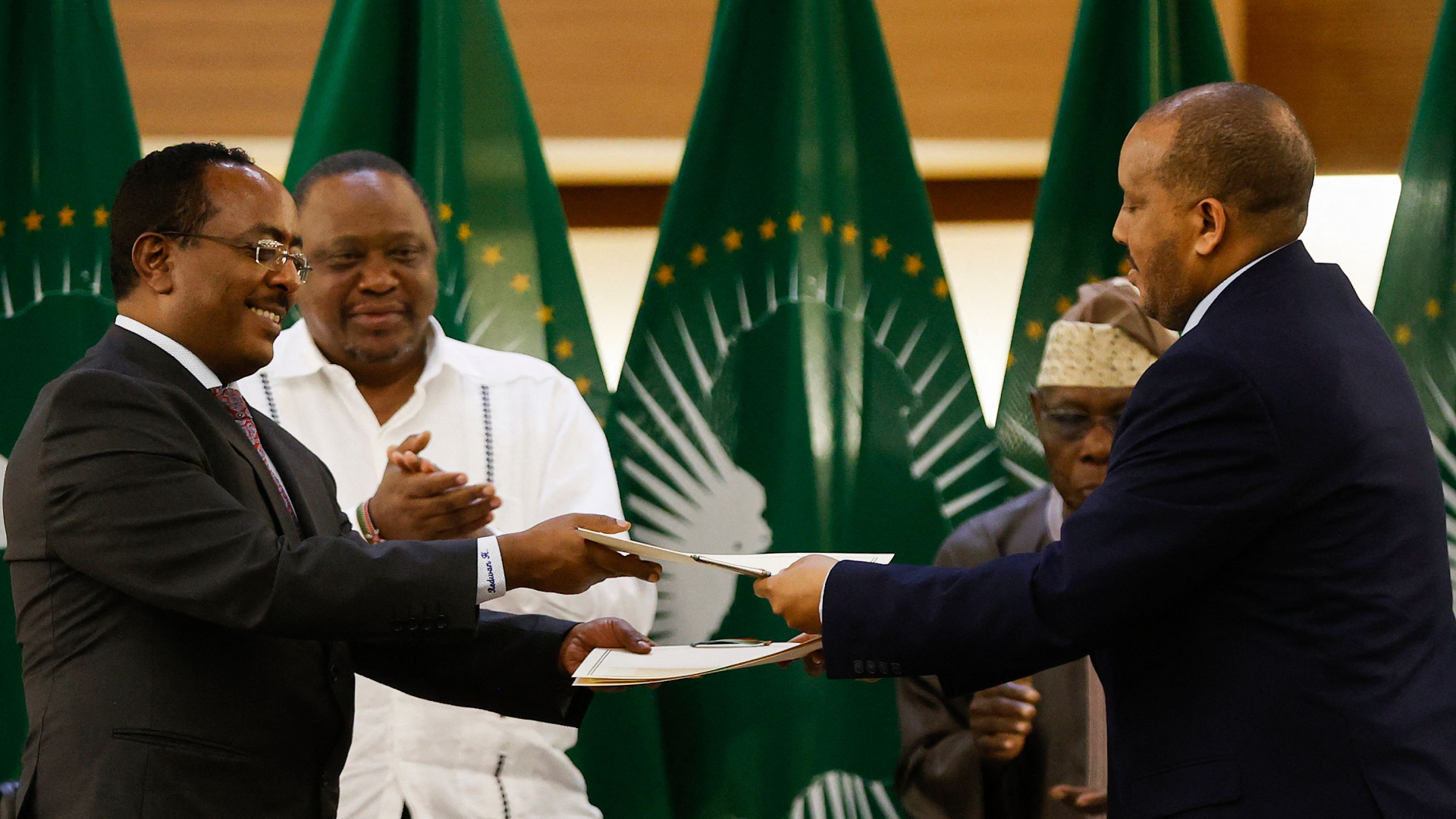A cessation of hostilities that the Ethiopian government and Tigrayan officials signed on 2 November is unlikely to last beyond several months, in our assessment. It will probably lead to a lull in violence in Tigray in the near term.
This assessment was issued to clients of Dragonfly’s Security Intelligence & Analysis Service (SIAS) on 8 November 2022.
A previous ceasefire signed in March 2022 collapsed after only five months, and there are few signs that the latest deal will be more durable. This is particularly as Eritrean troops and government-allied Amhara militias are still in Tigray. The former has yet to say whether they will abide by the deal.
The recent deal is unlikely to improve security, including the risks of civil conflict and organised crime, in other parts of Ethiopia over the near term. The government is still engaged in armed confrontations with other armed rebel groups, particularly in western Oromia, while there is a high risk of general crime countrywide. The government’s commitment of much of its military resources to the conflict in Tigray has come at the expense of its efforts in other regions, and this is unlikely to be reversed before 2023. These risks together with the poor financial situation mean we doubt that organisations will seek to rapidly step up their operations in the country anytime soon.
‘Cessation of hostilities’
An observable break in fighting in Tigray is likely over the coming weeks, at least. This follows a peace agreement signed by the warring parties during talks in South Africa that began on 25 October. The deal recognises federal authority over the region and includes a programme for the main Tigrayan rebel group (the TPLF) to completely disarm. The deal will also allow for the restoration of humanitarian deliveries to Tigray, which have been blocked since fighting resumed in August.
There remains a reasonable possibility that armed confrontations will resume between the TPLF and government-allied forces in the near term. There are three immediate issues. First, the TPLF has accused the government of carrying out drone attacks against the town of Maychew the day after the agreement was signed, highlighting the absence of robust monitoring mechanisms. Second, the rebel group will almost certainly request the return of territory lost during the war. And third, Eritrea and Amhara militias will probably seek to maintain a hold of those areas due to long-standing feuds with Tigrayan officials and fears of a resurgence.
- Even if it holds over the next couple of months, there are several shortcomings in the agreement, which we assess will probably lead to its collapse in the medium term
- Eritrean and government-allied Amhara militia forces active during the offensive against the TPLF were not invited to the peace talks
- Eritrean and Amhara militias maintain a military presence in the region
- Social media statements suggest some groups within Tigray and Amhara are opposed to the deal
- Long-standing territorial disputes between the Tigray and Amhara authorities in western Tigray remain unaddressed
- Eritrea has yet to announce its position on the peace agreement
A resurgence of fighting would very likely still be confined within Tigray itself, irrespective of when the agreement was to collapse. Even though they remain capable of conducting a guerilla conflict throughout Tigray, there are few signs that rebels can threaten the government outside of the region. Prior to signing the agreement, the government had been making significant territorial gains in the region and reportedly was nearing the regional capital. With the disarmament programme a key component of the agreement, the TPLF will probably struggle to rebuild its already weakened forces.
Security in other regions
Wider insecurity across Ethiopia will probably persist over the coming months. The country is still fragmented by the activities of armed rebel groups in the west and south, the most active of which is the Oromo Liberation Army (OLA). Already high crime rates inside Addis Ababa and in its environs have also worsened. The government is unlikely to reassign resources from Tigray before the full disarmament of the TPLF which will probably take at least a few months, sustaining insecurity elsewhere. And the economy will also continue to be stymied, not least by government efforts in Tigray.
Despite the signing of the peace agreement, frequent armed confrontations with other armed rebel groups will almost certainly persist. This is particularly in Western Oromia where the OLA rebel group has over the past year increased the frequency of its attacks. The group is seeking self-determination for Oromia. Data from our partner the Armed Conflict Location and Event Data Project (ACLED) shows that the OLA has been involved in 314 violent incidents this year, compared with 132 for all of last year.
High crime rates in large parts of the country also seem to have become more frequent, with criminals increasingly resorting to violence. We doubt that this trend will improve in the near term. A CEO of a local business based in Ethiopia who we spoke with last week told us that with their focus on Tigray, the authorities now lack the resources to prevent instances of looting of private businesses. Violent criminality is likely to be most common outside of major urban centres. But the UK Embassy also said earlier this month that there has been an ‘increase in violent robberies’ in Addis Ababa.
Financial situation
In-country businesses and those seeking to expand their operations following the peace agreement will likely still have to contend with the country’s poor financial situation. According to the IMF, the annual rate of inflation has risen from 20% to 33% since the start of the conflict. The same CEO told us that the most pressing concern for operations remains shortages in foreign currency reserves. These are driving high import costs as businesses are reliant on currency importers who charge extremely high fees. We have seen few signs that the government opening the banking sector to foreign investment in September has improved the situation.
Image: Redwan Hussein, Representative of the Ethiopian government, and Getachew Reda, Representative of the Tigray People’s Liberation Front (TPLF), exchange documents after signing a peace agreement in Pretoria, South Africa on 2 November 2022. Photo by Phill Magakoe/AFP via Getty Images.







